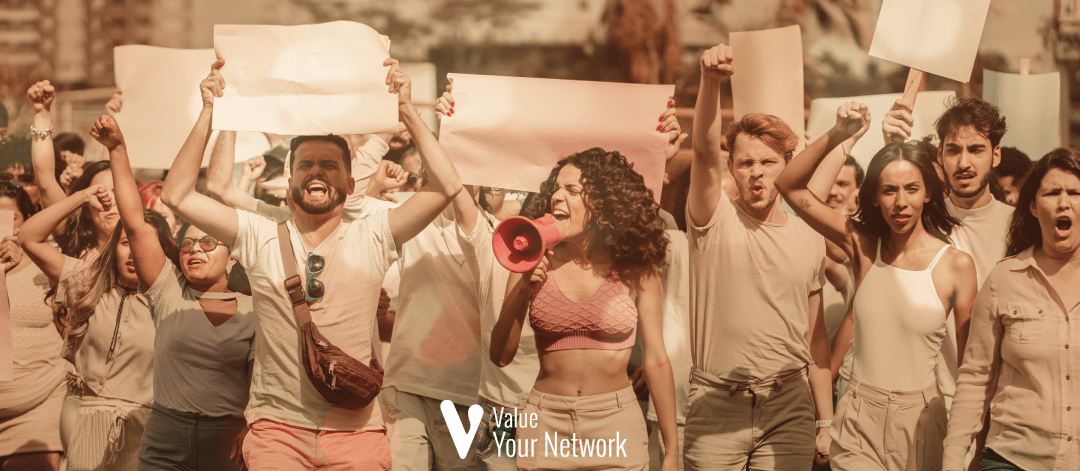Find out how social networks redefine democracy by transforming the relationship between citizens and governments, and become a player in this digital revolution.
Social networks, in the space of a few years, have established themselves as major players in the transformation of our societies. These digital platforms, which have become ubiquitous, are profoundly changing the way citizens interact with their governments, influence public policies and participate in democratic debates. But these digital tools, often seen as the engines of a democratic revolution, also raise many questions. What changes do they really bring? Are they tools of liberation or mirrors of the limits of our society? Let's dive into this fascinating exploration.
A new era of horizontality in politics
Social networks, by their very structure, break the traditional patterns of vertical communication between leaders and citizens. Historically, the relationships between rulers and governed were marked by a strict hierarchy: citizens expressed their voices in elections, and political decisions then came down in the form of laws or concrete actions. This pyramidal organization has been challenged by the advent of digital platforms.
/ X, a simple citizen can directly challenge a president or a minister. Facebook allows activist groups to bring together millions of members around a common cause. TikTok, with its viral videos, amplifies demands that a few years ago would not have gone beyond the local framework. This horizontality gives citizens an immediate voice, offering them a platform to express their opinions, without going through traditional intermediaries such as the media or political parties.
However, this horizontality comes with challenges. While it seems to democratize access to power, it also favors rapid, often emotional exchanges, to the detriment of nuanced and in-depth debates. The virality of content can sometimes amplify polarizing messages, transforming discussions into confrontation rather than dialogue.
Social networks as drivers of collective protest
When used collectively, social media becomes a powerful tool for mobilization. Iconic examples, such as the Jasmine Revolution in Tunisia or the Black Lives Matter movement, show how these platforms allow isolated individuals to come together around a common cause and challenge established power structures. These movements, often referred to as “digital revolutions,” demonstrate the ability of social media to transcend geographical and cultural boundaries.
By making injustices visible and quickly mobilizing a large audience, social media acts as a catalyst for social and political change. It also helps circumvent government censorship, providing a platform for voices that were once suppressed. However, their effectiveness often rests on the ability of movements to transform this virtual mobilization into concrete actions on the ground.
The limits of individual mobilization
Conversely, when social networks are used individually, their impact is often more limited. Internet users, although more visible, struggle to influence public policies in the long term. Platform algorithms, by favoring personalized content, reinforce information bubbles and homogeneous communities. This phenomenon, called the "echo chamber effect", reduces the confrontation of ideas, which is essential to deliberative democracy.
Moreover, the quest for personal validation on these platforms, measured in likes, shares or subscribers, often distracts from collective issues. Thus, social networks, instead of being places of democratic dialogue, sometimes become spaces of narcissistic monologues where the individual seeks to shine rather than to contribute to a constructive debate.
The ambivalence of social networks in democracy
Social media embodies both a promise and a challenge for democracy. Their ability to give a voice to all is undeniable, but this democratization is often compromised by complex dynamics. Governments themselves use these platforms to influence public opinion, strengthen their power or, on the contrary, censor content deemed threatening.
Examples such as internet shutdowns during political crises or disinformation campaigns show that social media can be a double-edged sword. They amplify democratic movements while providing new tools for authoritarian regimes to monitor and repress their citizens.
What you need to remember
Social networks are profoundly redefining democracy, transforming the relationships between rulers and the governed, amplifying collective demands and opening up new perspectives for citizen participation. However, they are not a miracle solution. Their impact depends on how citizens, institutions and governments use them.
For these digital tools to become true drivers of democratic transformation, it is crucial to encourage ethical use, promote digital education, and regulate algorithmic practices. In the digital age, democracy is no longer built solely at the ballot box, but also through clicks.
